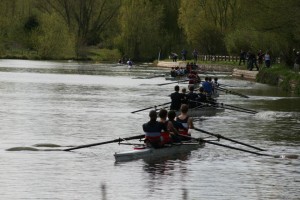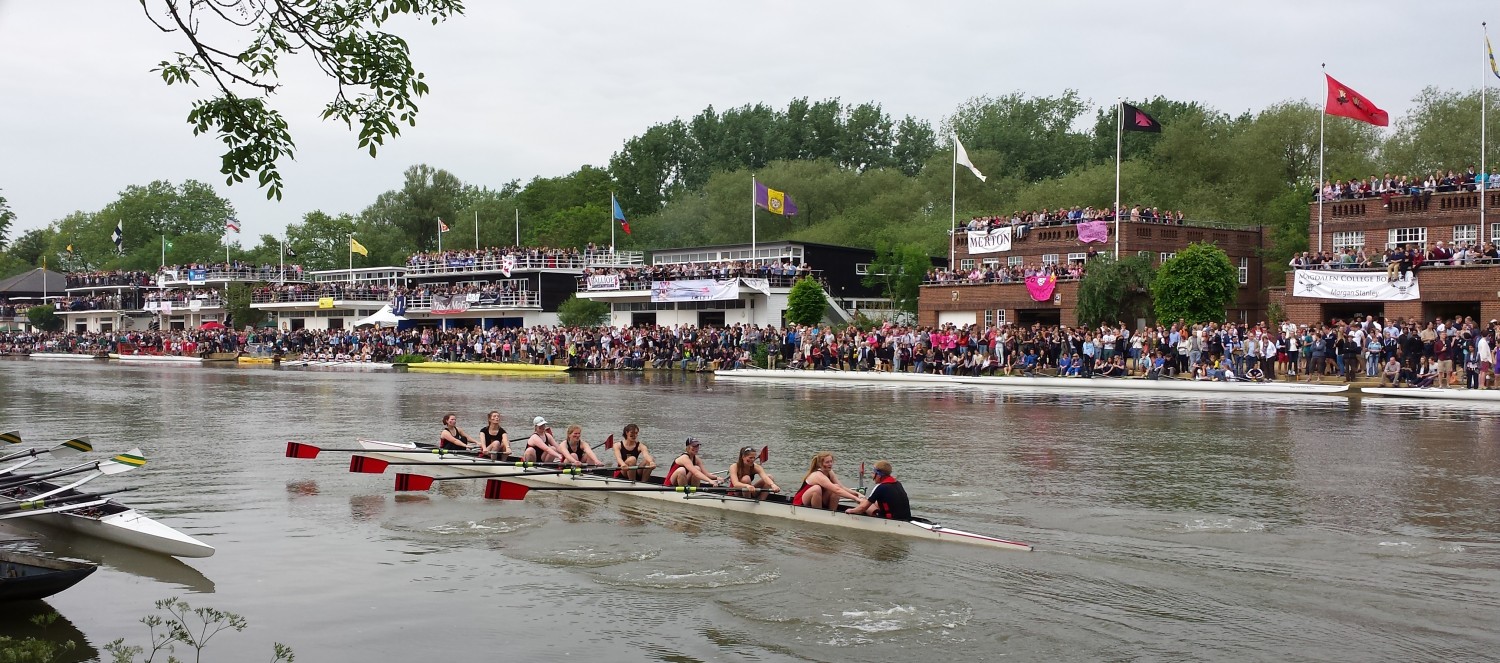Are you concentrating? (Then we’ll begin). By Howard Aiken
I occasionally have to remind my students that while rowing is not an intellectual sport, it  does make quite extraordinary demands on their powers of concentration. Very few beginners are in the habit (before they learn to row) of concentrating single-mindedly on how they are moving for an hour or more at a time. The level of concentration required is probably the second-biggest challenge that novice rowers face when stepping up from beginner status to rowing in competitive boats – the first challenge of course, being the required level of fitness.
does make quite extraordinary demands on their powers of concentration. Very few beginners are in the habit (before they learn to row) of concentrating single-mindedly on how they are moving for an hour or more at a time. The level of concentration required is probably the second-biggest challenge that novice rowers face when stepping up from beginner status to rowing in competitive boats – the first challenge of course, being the required level of fitness.
The special requirement for concentration derives from rowing’s status as the ultimate team sport. In this respect it has similarities with, for example, a corps de ballet – where the movements of each member of the corps have to reflect the movements of the leader. In rowing, of course the range of movements required is much more limited, but on the other hand unlike a corps de ballet, a crew have to deal with the rapidly changing requirements of wind, water and potentially a race, rather than the fixed choreography of a staged performance.
There is a hierarchy of requirements which rowers have to concentrate on:
- Timing – the pre-requisite for almost every other aspect of rowing
- Balance – dependent on good timing but a pre-requisite for the efficient deployment of power
- Power – the final component of a competitive crew, but very little use without balance and timing
This hierarchy is quite real. You can imagine an elite crew rowing and then take away their power, and you would still have a crew rowing well, but lightly. Take away both power and balance and they will still be moving the boat – but less efficiently. Take away their timing however and you really don’t have a crew. You have two, four or eight individuals in a boat, working against each other as much as they are working together. Anyone who has coached beginners in rowing will be able to visualize exactly what I mean.
Starting with the timing then, concentration on moving with the rower in the stroke seat is fundamental to rowing. However, stroke does more than just set the rate. Stroke also sets the ratio (the proportion of the stroke cycle spent on the drive phase versus the recovery phase), the hand heights and speeds, when to feather and square, when to catch and when to finish. Concentrating on moving with stroke throughout the full cycle from catch to finish and back again will require the full attention of any novice rower.
Balance similarly requires careful concentration. There are dozens of sources of imbalance in the boat and a number of them will affect most crews at some point. Working together to diagnose causes of poor balance, to correct them and to maintain the correction requires the concentration of the whole crew.
Of the three elements in the rower’s hierarchy of needs, only power does not of itself require careful concentration. But it is entirely dependent on the other two elements in the hierarchy and so the thoughtful application of power consistent with timing and balance, will always beat the application of power without such consideration.
Teaching crews to concentrate, not just occasionally but for the duration of an outing, is one of the key challenges in coaching. Learning to concentrate and to concentrate consistently on the right things is at the heart of becoming a good rower.
